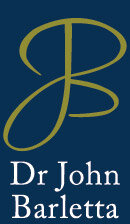Living a stress-free life
How great would it be if you could be one of those people who never seem to be overstressed and takes everyday hassles in their stride? If you are wondering how they do it, and what can you do to be part of that elite group, keep reading. Some say stress and the resultant anxiety and fatigue are an inevitable part of modern living, but tranquillity amid the busyness of life is absolutely achievable. Implement one of the following sure-fire strategies to help you take control of your life. By doing these things you will not only significantly improve your stress management but also improve your physical health and immune function.
Exercise
Reasonably vigorous exercise such as jogging, swimming, gym, bicycling, or boxercise are excellent ways of breaking the stress cycle. Exercise increases a variety of neurotropic growth factors in your brain increasing brain health and increasing serotonin levels and lowering cortisol. There is no downside to exercise as an aid to good brain and mental health. In addition to stress reduction, regular exercise enhances cardio-vascular fitness, physiological health and mood, while social connections can also be developed.
Meditation
This is a great mind-body exercise because as stress rises, the mind goes into over-drive, often with over-thinking and negative thoughts becoming present, and these activate physical changes in your body as your nervous system ramps up as do cortisol and adrenaline levels. When you focus during meditation, concentrating on the present enables you to let go of concerns about the past and the future. As your mind reduces worrying thoughts, your nervous system comes back into balance and stress hormones dramatically reduce. This process allows you to deal with the racing, unhelpful thoughts that seem to come at stressful moments. (Pilates, yoga, and Tai Chi also reduce stress).
Breathing
Another excellent mind-body technique is controlled breathing which lowers heart rate and reduces anxiety. Sit comfortably upright as it increases the capacity of your lungs to fill. Control the rate of your breathing, by inhaling slowly and deeply in through your nose and out through your mouth, and use the lower chest muscle (diaphragm). You breathe faster and feel more breathless if you use your upper chest muscles rather than the diaphragm. Check if you are using your diaphragm by feeling just below your breastbone (sternum) at the top of your abdomen. Also, relax your shoulders and upper chest muscles when you breathe, and relax your mind too. Anxiety makes breathing problems worse so distract your mind by closing your eyes and concentrating on pleasant, peaceful thoughts (or listen to quiet music). You know this works when you feel noticeably calmer in your mind and body. Like any technique, it takes practice as you learn how to replace patterns of stress with patterns of calmness. Once this skill is learned it is possible to switch off stress just by deciding to do so.
Massage
The experience of stress can lead to physical tension in the body, which is the tightness people feel in their back, neck and shoulders. Massage therapists and physiotherapists can easily lessen such discomfort by releasing tightness from tendons, soft tissue, and muscles. A trusted partner can also be extremely helpful by providing gentle massage to aid relaxation, this, in turn, can enhance a couple’s interpersonal connection. Touch is powerful psychologically and physically as it increases the sense of bonding and support, increases natural feel-good brain chemicals, and reduces stress hormones. Trialling just one of these strategies will get you feeling less stressed and able to deal with life’s challenges and tribulations – try one out and you are sure to benefit from the results!

